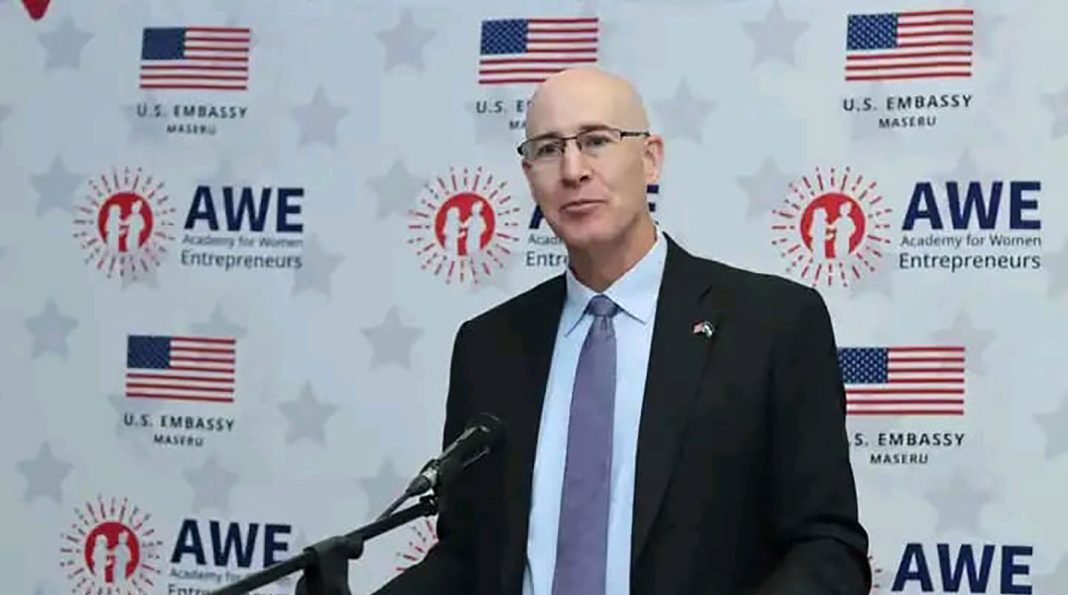The government has signed a massive M959 million build operate transfer (BOT) agreement with a China-owned company for construction and operation of a 35MW photovoltaic (PV) solar power plant and installation of a 20MW energy storage system at Ramarothole in Mafeteng.
The agreement was signed by the minister of finance, Retšelisitsoe Matlanyane, and Beijing Jingyuntong Technology (BJT) Co Limited this week.
The deal estimated at USD53million stipulates that the price of electricity generated by the project in the first year of operation will be M2.2 per KWh, with a five percent annual increase paid every 60 days.
The 15-year project, which will cover approximately 40 hectares of land, involves the construction of a 35MVA-132KV step-up substation at Ramarothole joint substation’s standby interval.
According to the terms of the agreement, the aim of the project is to generate sustainable energy, support energy independence in the country and contribute towards the government’s renewable energy goals.
The construction period of the project is estimated to be 12 months. following the construction phase, there will be a 30-day testing period during which the project’s systems including the solar PV array, energy storage and substation infrastructure, will be ran to ensure operational efficiency and compliance with technical specifications.
The project will be fully financed, constructed and operated by BJT.
Upon the expiry of the 15-year operating period, and following any final assessments and compliance checks, the project will be officially handed over to the government of Lesotho at no additional cost.
According to the agreement, Lesotho shall provide the construction site free of charge and will not charge any fees for the use of the site during the construction and operation of the project.
The government has also agreed to waive all customs duties and value-added taxes (VAT) in respect of the importation of goods and materials necessary for the construction of the project.
However, income tax is not exempt during the construction phase and shall be payable in accordance with applicable laws.
Upon completion for the construction phase and successful completion of the 30 days testing period, taxes including VAT, customs duties and corporate income taxes shall become applicable to the project’s operations.
The project aims to generate renewable energy, contribute to local economic development and enhance the energy infrastructure of the Kingdom of Lesotho with significant environmental and economic benefits.
When asked to comment about the agreement this week, minister of energy, Prof Nqosa Mahao, declined to comment stating that he could not provide information on an agreement that he was not part of.
“I am aware of the agreement but I cannot comment on it because I was not part of it,” Prof Mahao noted.
Attempts to obtain comments from the ministry of finance were unsuccessful as repeated calls to both the minister, Retšelisitsoe Matlanyane, and the principal secretary, Nthoateng Lebona’s calls went unanswered.
The agreement builds on the renewable energy goals already set in motion by the first phase of the project. This is part of Lesotho’s efforts to achieve energy independence and reduce its reliance on traditional, non-renewable sources of power.
Phase 1, which was financed by a soft loan from EXIM Bank of China which injected US$70.188 million (about M1.3billion), was a landmark initiative in the country’s renewable energy sector, providing a significant boost to electricity generation capacity.
The government of Lesotho chipped in with an addition M220 million, covering costs of land compensations valued around M57million, tax obligations as well as operating costs of the Lesotho Generation Company (LEGCO), under the ministry of natural resources.
The facility that occupied a 220-hectare plot of land has been installed in Ha Ramarothole village.









